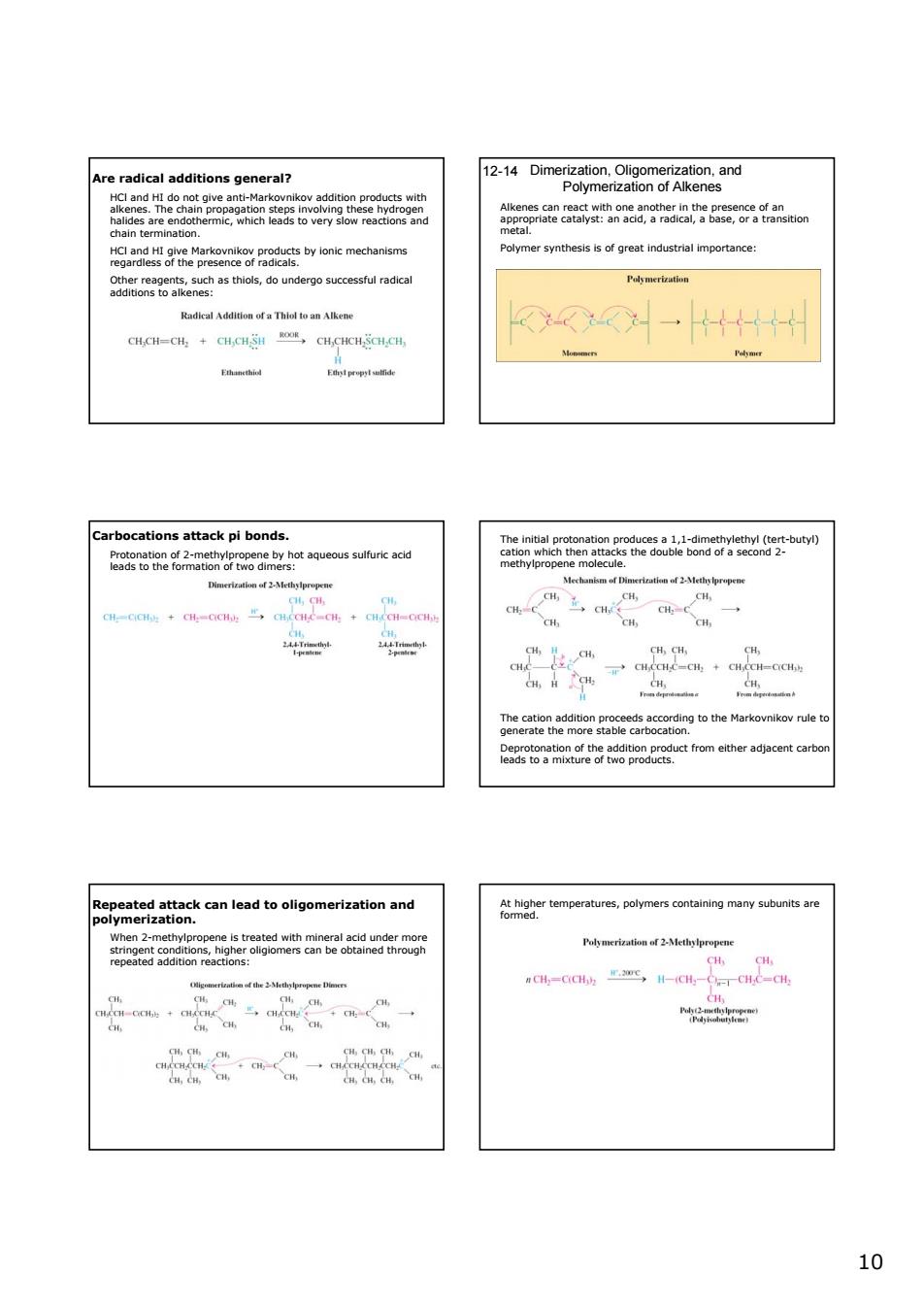正在加载图片...

Are radical additions general? 然2 mra8aam to very 28aaa Polymer synthesisis ofrindustramrane: Shio2Saeesthols,cbundergosuceafuadicdl 化adical Addition时Thiol to an Alkene CHCH-CH+ 风风一 CH.CHCH.SCH.CH Carbocations attack pi bonds. eawwn (o t from either adjacent car eatelatekcanleadtootigomerizationand temperatures.polymers containing many subunits a C-0CCC 然公公 10 10 Are radical additions general? HCl and HI do not give anti-Markovnikov addition products with alkenes. The chain propagation steps involving these hydrogen halides are endothermic, which leads to very slow reactions and chain termination. HCl and HI give Markovnikov products by ionic mechanisms regardless of the presence of radicals. Other reagents, such as thiols, do undergo successful radical additions to alkenes: Dimerization, Oligomerization, and Polymerization of Alkenes 12-14 Alkenes can react with one another in the presence of an appropriate catalyst: an acid, a radical, a base, or a transition metal. Polymer synthesis is of great industrial importance: Carbocations attack pi bonds. Protonation of 2-methylpropene by hot aqueous sulfuric acid leads to the formation of two dimers: The initial protonation produces a 1,1-dimethylethyl (tert-butyl) cation which then attacks the double bond of a second 2- methylpropene molecule. The cation addition proceeds according to the Markovnikov rule to generate the more stable carbocation. Deprotonation of the addition product from either adjacent carbon leads to a mixture of two products. Repeated attack can lead to oligomerization and polymerization. When 2-methylpropene is treated with mineral acid under more stringent conditions, higher oligiomers can be obtained through repeated addition reactions: At higher temperatures, polymers containing many subunits are formed